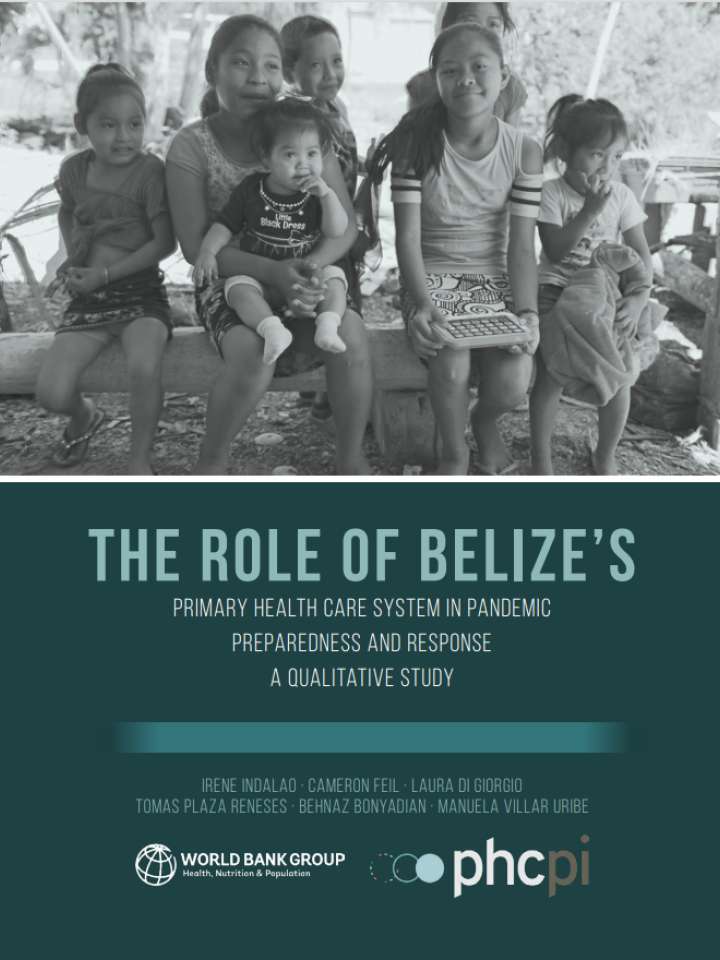The role of Belize’s primary health care system in pandemic preparedness and response: A qualitative study
This publications gives a deep dive into the evolution of Belize's healthcare system following the Covid-19 pandemic. A strong primary healthcare (PHC) system is the backbone of effective pandemic preparedness and response. While the incidence of COVID-19 in Belize has subsided, the lasting health and economic impacts caused by the pandemic have demonstrated the need to build a resilient health system. The most recent figures from the Statistical institute of Belize confirm that there have been over 60,000 cases and 678 deaths due to COVID-19. Additionally, a rapid phone survey of over 2,000 households, conducted between December 2021 and January 2023, found that 20.6 percent and 26.8 percent of respondents reported losing their job permanently or temporarily, respectively, and an additional 64 percent of respondents reported a reduction in their income during pandemic. Ensuring the health system remains resilient to shocks is critical, especially given the pandemic’s impacts on heath and the economy.
The article found that Belize had a strong PHC system prior to the pandemic and several challenges limited the COVID-19 response and recovery. However, both the lack of an official pandemic plan, along with severe health care force shortages hindered Belize’s ability to rapidly respond to the increased demands imposed by the pandemic. While responding to the increased service delivery demands has remained a challenge, communication and surveillance have greatly improved over the course of the pandemic. The frequency and specificity of communication and outreach at the community level has improved significantly. The entire surveillance system has shifted from a paper-based, once-per-week to a digital, real-time reporting system. Overall, there are several opportunities to strategically invest in the strengths and gaps to further strengthen the preparedness and resilience of Belize’s PHC system.
Explore further
